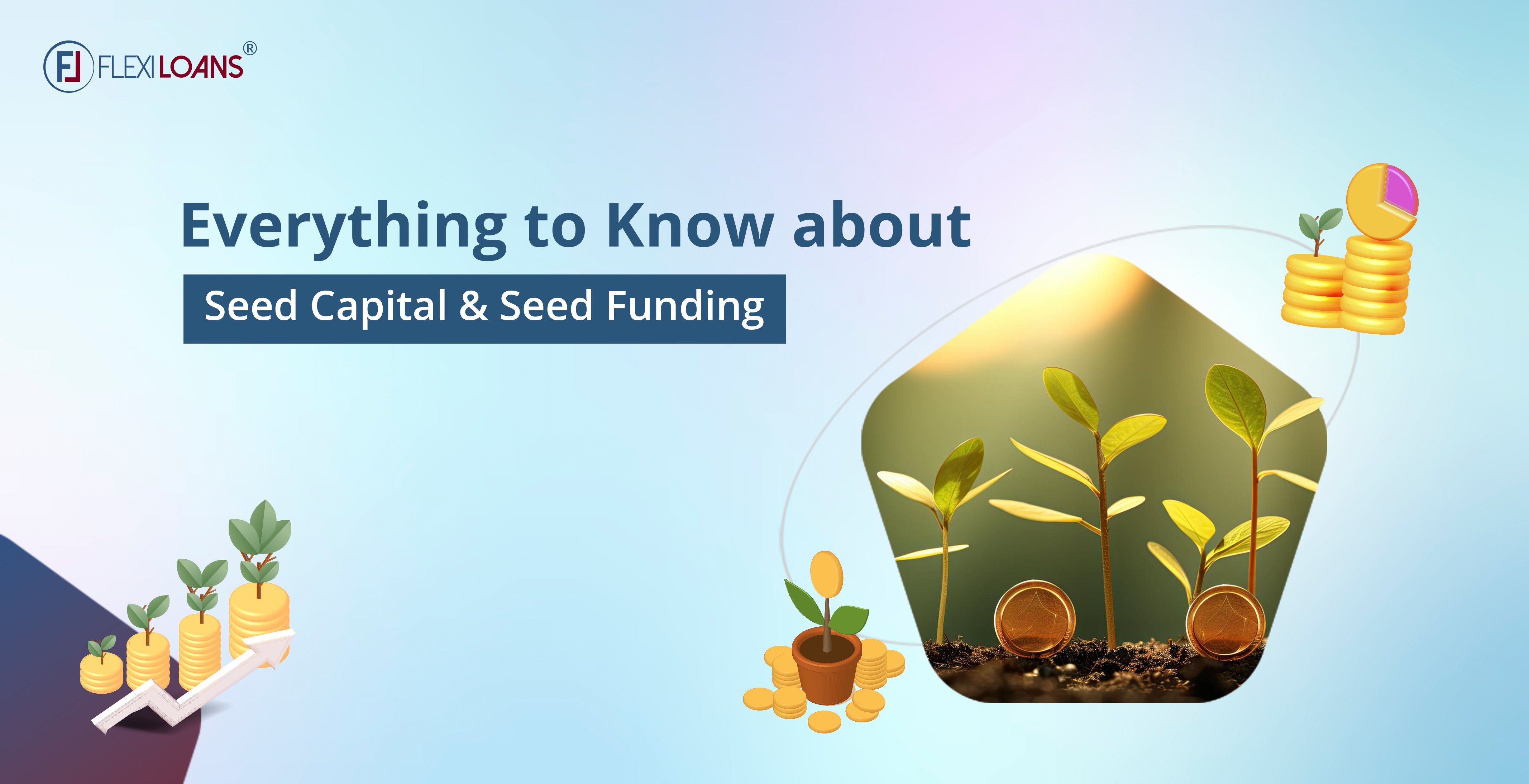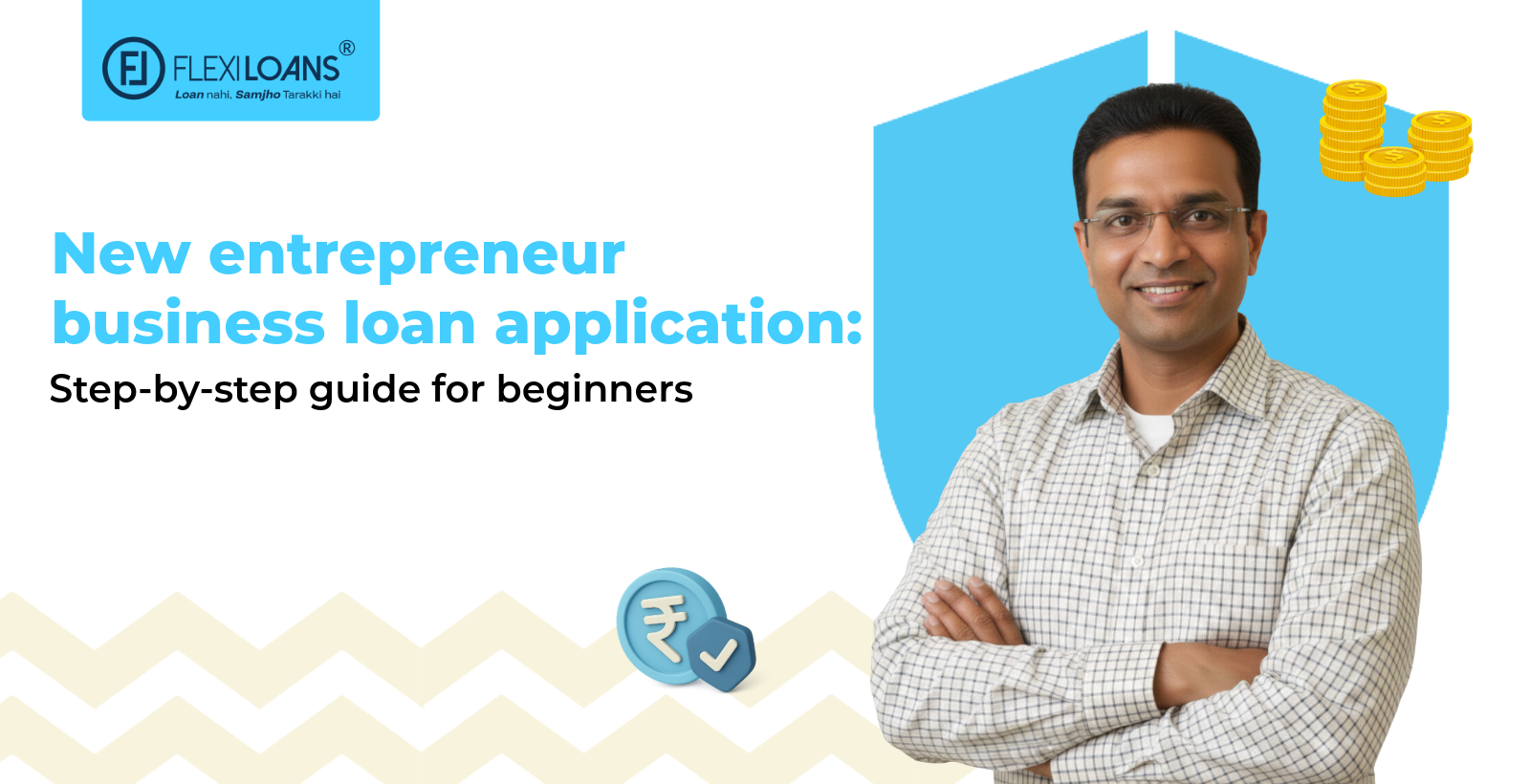Sep 28, 2023
Dec 15, 2025

If you’re wondering what seed funding is, let’s break it down for you. Seed funding is the financial support a startup receives during its early stages, typically when it’s just starting, generating ideas, and laying the groundwork. As an entrepreneur, understanding seed funding is crucial for you to build your business successfully.
What is seed capital funding?
Seed funding is like taking care of a plant from its very beginning. Seed funding occurs when a startup receives financial support during its earliest or seedling stage. This money, called seed capital, usually comes from family, friends, or the founders themselves. It’s crucial for covering initial costs like production, machinery, research and operations.
Seed funding helps you turn your ideas into real products and attract potential investors. It usually happens when:
1) The initial planning phase is over
2) The problem and solution are clear, and real customers are interested
3) The founders are ready to bring their concept to life.
So, in simple terms, seed funding is the first financial push a startup gets, to flourish further on. It’s not just for materials but also for needs like marketing, hiring staff, and building relationships with the public. It’s like the starting point for your business journey.
Requirements for seed funding
Remember, there are no strict technical requirements for seed funding. Some businesses succeed with just an idea, while others benefit from having a minimum viable product (MVP), knowledge of their target market, and an initial team in place. Learn to tailor your approach to match your unique business circumstances.
To secure seed funding, here are the requirements you need to consider:
- Begin by defining a clear business potential that holds the promise of success. Incorporate suggestions and feedback to strengthen your vision.
- Apply for trademarks and registrations to safeguard your business idea from being copied or copyrighted by others. This ensures your unique concept remains yours.
- To attract potential investors, you have to prepare a compelling pitch that showcases the potential of your business. Convincing funders is vital for securing the necessary financial support.
- As the business spokesperson, create a clear financial analysis outlining your goals and milestones within a specific timeframe. This will capture the interest of investors, showing them the potential returns on their investment.
- Use the initial investment judiciously, including allocating funds for worker salaries. Your financial plans mustn’t appear extravagant to potential funders. Impress them not just with words but with tangible progress and improvements in your field.
Types of seed funding
Let’s break down the different types of seed funding available for startups. Note that it’s essential to choose the one that aligns best with your startup’s vision and needs.
- Friends and family: This is one of the most common sources of seed funding. It involves raising capital from your network, which can be less formal than other methods. However, it’s important to communicate the high-risk nature of investing in startups to your friends and family.
- Crowdfunding: The number of crowdfunding platforms is steadily rising, offering opportunities to anyone who values and backs your idea.
- Incubators: Startup incubators are programs designed to support new startups. They provide resources such as workspace, mentoring, training, and sometimes seed funding. However, the level of financial support can vary among incubators.
- Accelerators: Private startup accelerators offer funding and support to cover early-stage expenses. In return, they typically take a percentage of equity in your company. This model helps startups grow rapidly within a structured program.
- Angel investors: Angel investors are individuals who invest in startups to diversify their portfolios. They often have experience and a deeper understanding of the risks associated with startup investments.
- Corporate seed funding: Some large corporations are getting into the startup funding game through their venture arms or funds. They partner with established VC firms or launch their funds to invest in seed-stage companies aligned with their business goals.
How to Raise Seed Funding?
To raise seed funding, you require a creative business idea that can transform into a money-making venture. Your pitch to investors is crucial. Make sure you have a well-documented business plan that explains your target market, market potential, competitors, and financial projections for the next few years.
In startup funding, investors usually get a share of your company in exchange for their money. This means they profit from your startup in the short term and hope for long-term growth.
Startup funding happens in different rounds, each tied to your startup’s progress. The first round is Pre-Seed Funding, where you might get funds from promoters, family, or friends to kickstart your operations.
Seed Funding is the first official funding for your business.
In Series Funding:
- Series A Funding comes after Seed Funding. Investors here want to see a long-term plan, not just an idea. Venture capitalists often step in at this stage.
- Series B Funding is for startups that have passed the development phase and need funds to expand and meet demand.
- Series C Funding is for startups with a successful product, a steady user base, and a history of growth. It helps them grow rapidly, sometimes through acquisitions. At this stage, private equities, investment banks, and hedge funds become a part of, and many companies target an Initial Public Offering (IPO).
Keep in mind that valuations in Series C Funding rely on actual numbers, not estimates. So, make sure you have to meet your goals to succeed at this stage.
The risky aspect of seed funding
- Seed funding often entails high interest rates, meaning that if a startup struggles to achieve growth and scalability, it will incur substantial interest payments.
- Equity dilution is another significant risk. As a startup secures more funding, the ownership percentage of each founder tends to diminish. This becomes problematic if founders don’t share the same long-term vision for the company.
- Seed financing presents a high-risk proposition for investors. There’s a considerable chance that the startup might fail, resulting in investors losing their capital. While investing in any business carries inherent risks, this is particularly pertinent in the context of seed financing.
In simpler terms, investing in businesses with uncertain prospects is inherently dangerous. It’s viewed as risky from the investor’s perspective, but if they recognize the idea’s potential, it can be a mutually beneficial venture. Investor perspective significantly influences the assessment of business setup risks and requirements. In some cases, investors may include the founders themselves, who contribute seed capital.
Convincing these investors may appear challenging, but it’s a crucial step in the startup journey. Gaining investor buy-in is essential for entrepreneurs. Investors’ primary concern is the possibility of the business failing and their capital going to waste, which deters them from fully backing the idea’s transformation into a thriving business.
Advantages of seed funding
- Investors assume risk willingly: The primary advantage of seed financing is that investors willingly embrace the substantial risk associated with starting a firm.
- Debt-free financing: It typically provides debt-free financing, relieving you of business loans or liabilities. Instead, you exchange a portion of the company’s stock for investment.
- Rapid growth: Seed investment provides you with the financial means to seize new opportunities and accelerate the growth of your business.
- Flexible company agreements: Unlike venture capital and traditional bank business loans, seed funding agreements are adaptable and flexible to meet the needs of the startup.
- Angel investors share knowledge and experience: Angel investors, venture capitalists, incubators, partnerships, or accelerators not only invest in the company but also provide valuable insights and expertise.
- No monthly fees: Many investors, except for loans and borrowings, opt to own a stake in the new enterprise instead of charging interest or monthly fees.
5 steps to select the right investors for your startup
- Define your investor preferences: Determine the type of investor you prefer – one who actively participates in your business or one who remains more passive in their involvement.
- Conduct thorough investor research: Investigate potential investors thoroughly. Analyse their net worth, track record with past investments, success rates of the businesses they’ve backed, typical investment timeframes, and their specialisation in specific industries.
- Set clear seed funding goals: Establish your funding objectives and integrate them into your overall business plan.
- Seek expertise and guidance: Consider the expertise and advice that potential investors can bring to your business, going beyond just providing funding.
- Evaluate compatibility: Carefully assess each potential investor’s alignment with your business vision and goals to ensure they are a suitable fit for your startup.
Seed Capital vs. Angel Investing
When it comes to Seed Capital vs. Angel Investing, remember this:
Angel Investing: Professional angel investors, often high-net-worth individuals, may provide seed money as a business loan or in exchange for future company equity. They often come from the founder’s personal network and actively help develop the startup. They provide an investment with more advantageous terms in comparison to traditional lenders.
Seed Capital vs. Venture Capital
Seed capital is the first step in developing a business idea. It’s used to get the idea ready for presentation to venture capital firms, which have a lot of money to invest. If the venture capitalists like the idea, they invest in its development and get a share of the new venture.
Venture capitalists are the big players when it comes to funding a new business. They invest heavily in product development, market research, and prototype production. Most startups at this stage have offices, staff, and consultants, even if they don’t have a product yet.
Unlock your startup’s growth potential with FlexiLoans!
Are you a startup looking for reliable financial solutions? Well, FlexiLoans, India’s leading FinTech company, offering msme loans, is here to help you achieve success with your ideas.
We tailor our online platform to cater to the unique financing of startup business loan requirements, helping you overcome hurdles such as limited credit history, collateral demands, and tedious approval procedures.
Discover a wealth of insights and resources and take your business to the next level with FlexiLoans. Explore our services at FlexiLoans and fuel your business ambitions today!
FAQs
Debt financing stands in contrast to equity financing, which involves issuing stock to generate capital. Debt financing takes place when a company sells fixed-income instruments like bonds, bills, or notes. Unlike equity financing, where investors receive shares in the company, debt financing requires repayment.
Startups should consider participating in innovation festivals and conventions to increase their visibility. Essential preparation includes ensuring all necessary documentation and banking information.
It’s crucial to factor in an adequate amount of funding to support the business’s development and expansion when entering the world of investments.
Effectively pitching your idea requires strong communication skills and expertise. Identifying the right target audience is a promising initial step toward launching your business.
Seek it when your product, market, or team is strong enough for venture backing, typically after identifying market opportunities, satisfying customers, and achieving rapid adoption.
Once seed capitalists connect with entrepreneurs, they agree on the amount of seed money to invest. This seed capital is repaid within a specified timeframe, usually with interest. After repayment, investors may either claim a percentage of revenue or sell their stake in the business.
Entrepreneurs who are launching businesses and starting to generate revenue often need seed capital to establish a solid financial foundation. Seed money can be used to cover expenses such as supplies and marketing materials.
Seed capital is typically offered to entrepreneurs before their businesses become too large. It’s provided to help them get their companies off the ground.
Varies by the investor. Startups can be pre-revenue to generate hundreds of thousands annually. Show value through social proof like feedback and press coverage.







